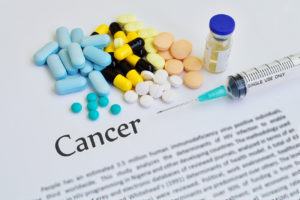Background
Melanoma is a serious form of skin cancer that begins in cells known as melanocytes. Melanoma is dangerous because it can rapidly spread to other organs in the body and form new lesions, metastases.
TNF inhibitors are drugs that help stop inflammation. They are used to treat diseases like rheumatoid arthritis (RA), juvenile arthritis, psoriatic arthritis, plaque psoriasis, ankylosing spondylitis, ulcerative colitis (UC) and Crohn’s disease.
TNF blockers can be used to manage gastrointestinal inflammatory side effects following Nivolumab (Opdivo) and/or Ipilimumab (Yervoy) treatment in advanced melanoma patients.
Pre-clinical data showed that anti-TNF could promote the efficacy of immune checkpoint inhibitors.
Infliximab (Remicade) and Certolizumab (Cimzia) are approved TNF blockers widely used.
TICIMEL Study
TICIMEL is a phase Ib clinical trial. 14 advanced and/or metastatic melanoma patients (Stage IIIc/IV) participated in this trial.
Patients were treated with Opdivo and Yervoy combined to Remicade or Cimzia.
In the Cimzia cohort, 4 out of 8 patients exhibited hepatobiliary disorders.
Results
- 7 out of 7 evaluable patients achieved tumor shrinkage including 4 complete remission of disease and 3 partial shrinkages of the tumors.
- In the Remicade cohort, 1 patient achieved complete remission of disease, 2 patients achieved partial shrinkage and 3 did not responded to the treatment and their disease worsened.
Side Effects
- One Dose Limiting Toxicity, DLT, was observed, in the Remicade cohort.
- The two different combinations were found to be safe.
- Lower treatment-related side effects were seen with Remicade as compared to Cimzia.
Contact us to find out what is the best treatment for YOU
TRIAL•IN Pharma
Because we, do not give up on life!
Contact us 24/7 –
Call center +44.2082.426.039




















